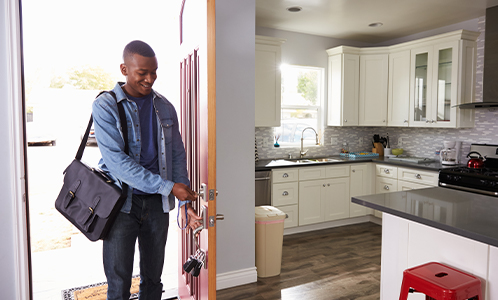See Mortgage Options
DCU offers a variety of loan options to choose from including adjustable rate mortgages and fixed rate mortgages.
LEARN MOREStop paying big bank fees. Make the Switch to DCU.
Let us help you save money on your next loan.
Online calculators to help you make informed and educated decisions.
We provide a range of free services and ways to making banking easier.
Stop paying big bank fees. Make the Switch to DCU.
No Recent Searches Found
Did you mean:
Sorry, We couldn't find what you are looking for. It could be because of many reasons.
DCU Routing Number: 211391825
Sorry, We couldn't find what you are looking for. It could be because of many reasons.

If you’re preparing to buy a home, you probably have a plan in place for covering the down payment. But have you considered how to pay for closing costs? Closing costs are the expenses and fees required to complete a real estate transaction and finalize a mortgage.
Closing costs can range from a few hundred to a few thousand dollars, depending on the size of the loan, type of loan and the state where you live. On average, closing costs total about 2% to 5% of the purchase price. For example, if you’re buying a $200,000 home, closing costs could range from $4,000 to $10,000.
DCU offers a variety of loan options to choose from including adjustable rate mortgages and fixed rate mortgages.
LEARN MOREPlease note, membership is required to accept a DCU Mortgage Loan. Visit our membership eligibility page for more information.
Before you sign an agreement for a mortgage, ask about the closing costs you’ll be responsible for paying. All lenders are required to provide a Loan Estimate, informing you of the important details of the loan you applied for, including and estimate of the closing costs you’ll have to pay. Your lender will then share the total amounts and final terms of your loan in a Closing Disclosure statement at least three days before your closing.
Here’s an example of some standard closing costs – there may be others depending on your situation:
There are always costs associated with closing a loan, but it’s a matter of who pays for them. Here are some examples of ways closing costs can be paid:

If you have the option to wrap your closing costs into your mortgage loan, you could use your cash for the down payment instead. Keep in mind that financing your closing costs increases your loan amount, which means you could have a higher monthly payment and pay more in interest.
Meet with your mortgage lender to ask questions about any closing costs, fees, or terms you don’t understand. Knowing what to expect and how much you’ll pay can help you avoid any surprises on closing day.
Please note, membership is required to accept a DCU mortgage.
This article is for informational purposes only. It is not intended to serve as legal, financial, investment or tax advice or indicate that a specific DCU product or service is right for you. For specific advice about your unique circumstances, you may wish to consult a financial professional.
Calculate how much home you can afford based on the the highest payment you can afford.
Budgeting for a new home can be challenging. This calculator can help you estimate what your monthly mortgage payments will be.
©
Digital Federal Credit Union. By using this site, you accept DCU's Terms of Use and Privacy Practices.
You are about to enter a website hosted by an organization separate from DCU. Privacy and security policies of DCU will not apply once you leave our site. We encourage you to read and evaluate the privacy policy and level of security of any site you visit when you enter the site. While we strive to only link you to companies and organizations that we feel offer useful information, DCU does not directly support nor guarantee claims made by these sites.
